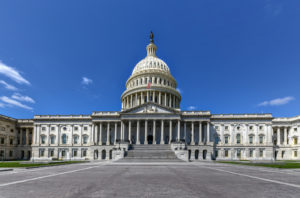Article
Key Changes are Waiting in the Wings
 The midterm elections are approaching, and the final weeks of the U.S. Congress will be a “lame-duck” session, and legislation impacting retirement plans is still waiting on Capitol Hill. Notwithstanding, it’s possible that some of those bills will move forward.
The midterm elections are approaching, and the final weeks of the U.S. Congress will be a “lame-duck” session, and legislation impacting retirement plans is still waiting on Capitol Hill. Notwithstanding, it’s possible that some of those bills will move forward.
Auto-enrollment. Regardless of a plan sponsor’s view of auto-enrollment, observers say it works from a policy and industry perspective. The pending bill does not demand that employers implement auto-enrollment but rather provides incentives to do so. It does not appear that existing retirement plans will be subject to a mandate.
CITs in 403(b) Plans. The SECURE Act 2.0 would allow 403(b) plans to invest in collective investment trusts (CITs).
Permanent Part-Time Workers. Although the SECURE Act established a focus on this topic, it only applied to employees who accrued at least 500 hours over three years. The current clause would reduce that to only two years.
Required Minimum Distributions (“RMD”). Both the House and the Senate are considering legislation that would postpone the distribution requirement age.
Catch-up Contributions. This proposal is a so-called “pay for,” and there is enough money in it to cover the cost of the rest of the legislation .
Paper Statements. According to the American Retirement Association, there is a great deal of debate surrounding the transmission of retirement statements. One industry group in maintains that paper statements are necessary for their members and that electronic statements are insufficient. Such a clause exists in the SECURE Act 2.0, which the House adopted, but is not present in the current measure before the Senate.
Saver’s Credit Matching Contribution. A government match for retirement savings for employees with moderate incomes would replace the Saver’s Credit under the Senate’s EARN Act. The match would deposit to a taxpayer’s IRA or plan account. If passed, it would encourage participation and savings by middle-class workers.




